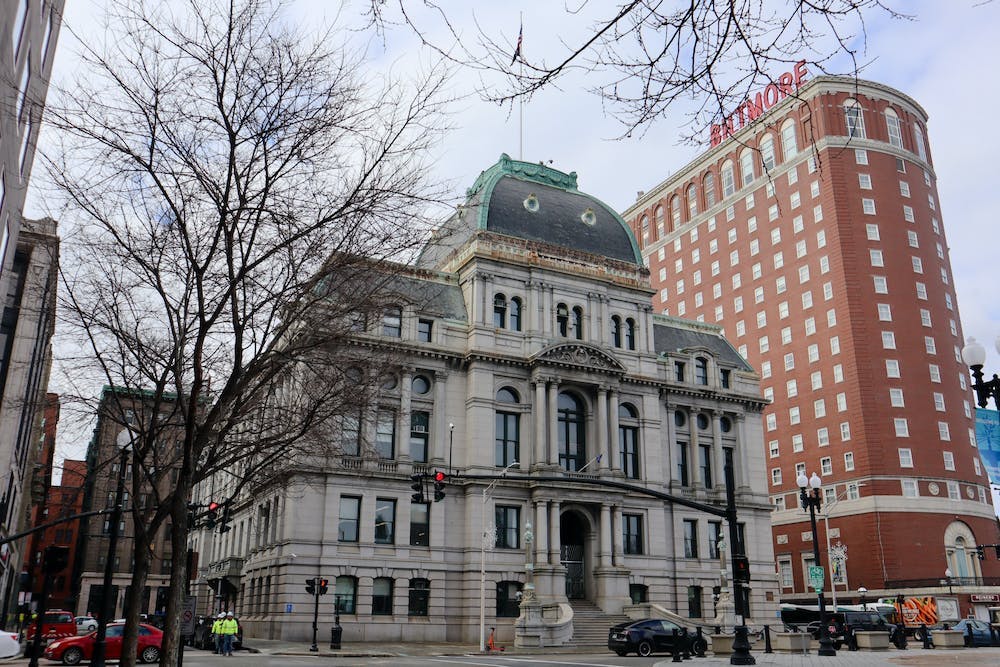Last November, former Providence Mayor Jorge Elorza signed a $10 million reparations budget, formally known as the COVID-19 Equities Program. The program will fund initiatives to close “the present-day racial wealth and equity gap” through 2024 using a portion of the $166 million in American Rescue Plan Act funds that the city received as federal COVID-19 response money.
Initiatives funded by the program will include equity-building, educational and healthcare programs. The program, informed by the 2021 Matter of Truth report released by the Mayor’s African American Ambassador Group, also allocates one million dollars for homeownership and financial literacy programs and $200,000 for a fund to support those impacted by urban renewal.
According to Patricia Socarras, director of communications for Mayor Brett Smiley, “to date, no dollars have been distributed from the designated $10 million.”
“At this point in time, the Smiley administration is still conducting a rolling line-by-line item review of the reparations budget to ensure that programs will be administered in a manner that most meaningfully advances the goals outlined in the reparations commission report and in accordance with required competitive bidding procedures,” Socarras wrote in an email to The Herald.
James Vincent, housing committee chairperson for the New England NAACP conference and senior advisor to the Black Lives Matter Rhode Island Political Action Committee, who also served on the Municipal Reparations Commission, said that the process was “labor-intensive” but ultimately successful in reaching a consensus on how funds would be allocated.
Despite hope for the program, Vincent said that the commission struggled with limited funding because there was “not enough money to really do the kinds of things that would have an impact,” on the racial wealth and equity gap. “We would need trillions of dollars” to make a real impact, he added.
The commission also struggled with working around federal guidelines that prevent ARPA funds from being spent on programs that target race specifically, according to LaJuan Allen, senior advisor of BLM RI PAC.
For example, the commission recommended wiping out “all municipal court debt” for people of African and Indigenous descent who “as of the issuance of this report and continue annual discharge until systemic reforms to increase accessibility to and engagement with municipal court are enacted.”
Unpaid court fines are the primary cause of suspended licenses in the city, which can result in Providence residents getting arrested, further contributing to court debts. But the commission’s recommendation couldn't be implemented because the policy factors in race.
“This can be done with private funds, not with public funds,” Vincent said.
But for some community members, limitations on ARPA fund usage take away from the program’s mission. Local activist Justice Gaines ’16 told ABC News that the reparations program “is city funds from COVID-19 to fund an anti-poverty program. That’s not what reparations is.”
Additionally, despite claims by the reparations committee of involvement by members of local Indigenous communities in the planning process, members of the Narragansett Indian Tribe — Rhode Island’s only federally recognized Tribe — said that Elorza’s office didn’t reach out to the tribe, according to ABC News. Elorza’s office declined to comment to ABC.
“We cannot speak to the decisions and processes of the Elorza administration, and while we recognize the significance of this initiative, that distinction (in administrations) is important,” Socarras wrote in an email to The Herald.
Allen said that BLM RI PAC supports the commission’s recommendations and believes that the city is “on track to really spend (the money) in a way that is helpful.”
But Allen said that no matter how much money is spent, he believes “there is no way the city of Providence … can repair” generations of harm. “This is just the tip of the iceberg,” Vincent said.
Providence’s push for reparations is part of a nationwide effort, according to Allen. Activists are currently pushing for the passage of H.R.40, a bill that would establish a Commission to Study and Develop Reparations Proposals for African Americans at the national level. Several local organizations, including the New England chapter of the National Coalition of Blacks for Reparations in America and the 1696 Heritage Group, also advocate for reparations.
Allen added that BLM RI PAC supports Rhode Island's General Assembly implementing a more permanent reparations commission that looks at its impact in the state more broadly. This commission, he added, could be tasked with assessing the impact of reparations in the state and making recommendations on how to move forward.
Chinmayi Rajaram is a staff writer for The Brown Daily Herald. She likes that one quote about the peeling paint and the other one about oranges.





